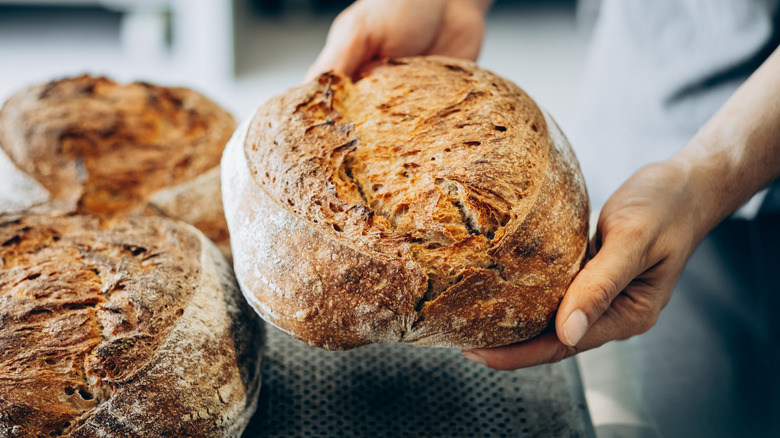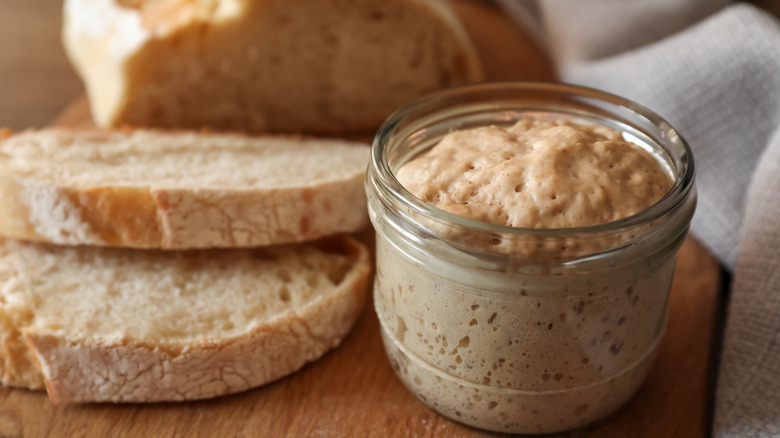How Proofing Time Affects Your Homemade Bread
We may receive a commission on purchases made from links.
Since its sudden rise — pun intended — during the Covid-19 pandemic amidst yeast shortages, baking sourdough bread at home has become quite the popular pastime. And this hobby certainly passes the time with all the waiting. Waiting for the sourdough starter to ferment, waiting for the dough to rise, waiting for it to bake into the perfect golden loaf. Patience is truly a virtue when baking sourdough, but the science behind it proves it's all worthwhile.
In an exclusive Food Republic interview, we spoke to Hannah Dela Cruz, founder of sourdough baking blog Make It Dough and author of "Sourdough Every Day," who explained how proofing affects your bread. According to Dela Cruz, "The longer dough ferments, the more time the yeast and natural bacteria in the sourdough starter have to break down the sugars and starches in flour. This not only helps the dough rise by creating carbon dioxide but also produces organic acids that add depth and complexity to the flavor of bread."
You can also help build flavor by using the best kind of flour for your sourdough loaf, so long as you let your starter rest and rise. While it may feel painfully slow, Dela Cruz explained, "A longer proofing time allows these flavors to intensify, resulting in bread that's easier to digest with a richer taste and spongier texture." So let the fermentation process go on as long as possible, then do the dough poke test to see when your bread is perfectly proofed.
The hot and cold of dough proofing
There are factors to consider other than time while proofing your bread, most notably temperature. According to Hannah Dela Cruz, "In colder conditions, yeast activity slows down while bacteria continue producing acids, enhancing flavor while reducing the risk of overproofing." Cold-proofing allows more time to break down the sugars and starches in a stable environment without introducing changes in surrounding humidity.
Meanwhile, Dela Cruz said, "At room temperature, fermentation happens more quickly, allowing the dough to rise faster but leaving less time for complex flavors to develop." So while this may work if trying to speed up the baking process, your dough won't have the same depth of flavor and may overproof, and can only safely sit at room temperature for up to six hours.
It seems that the fridge might be the key to better bread, at least in the case of sourdough — but even when refrigerated, are there risks of long fermentation? According to Dela Cruz, "As long as the temperature is controlled and fermentation isn't extended too far, long fermentation poses no risk to flavor or texture." So bakers, and their sourdough, can rest easy knowing their bread will rise safely and still taste great. But, in the end, this still votes in favor of refrigerating dough to keep conditions the most constant, so your bread can properly proof and yield the tastiest results.


